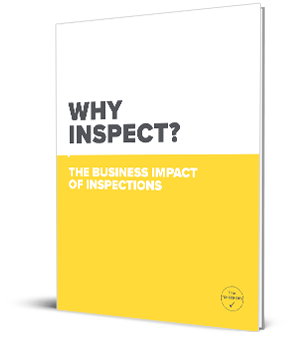A "corporate-owned personally enabled" (COPE) IT business strategy is a means by which a company buys and provides its personnel with the mobile devices they need to run the day-to-day operations of their job.
This strategy is an opposite approach to “bring your own device” (BYOD) policies, which allow members to use their own devices for work-related matters, such as conducting safety inspections and audits.
With a sharp rise in cybercrime over the past years and even more cybersecurity issues expected in the foreseeable future, BYOD strategies will increasingly become riskier. Because BYOD devices can inadvertently put the company's data at risk, the more-traditional COPE method often makes more financial and security sense.
One report by the Wall Street Journal Custom Studios and Symantec has concluded that over half of employees within an organization think that the security of a company's data is only the responsibility of the IT department. Additionally, 79 percent of staff members admitted to engaging in risky behavior—intentionally or unintentionally—that puts the organization at risk. Likewise, 49 percent also said they never think about the security risks involved when transferring and sharing files.
Benefits in Addition to Cybersecurity
Considering only the cybersecurity benefits that COPE can offer, some business owners may still be inclined to follow the BYOD method. There are, however, several other benefits of COPE that should be taken into consideration:
- A means for necessary communication for personnel who don’t have suitable devices or are working in remote or hard-to-reach places.
- The ability to incorporate various controls on the device that determine how apps, networks, and IT systems will be used. Similarly, companies can decide whether and when specific information can be retrieved in certain scenarios.
- Control of when a device can access certain work-related apps, services, networks, solutions, or sites.
- The ability to clean a device of any sensitive data if an employee loses the device or leaves the organization.
- Assurance that a device has the functionality to use productivity-enhancing software, such as The Checker Software, a cloud-based system that allows personnel to use any internet-connected mobile device to conduct safety reviews, facility compliance audits, inspection processes, hazard assessments, etc.
Takeaway
If your company needs to equip certain personnel with work-specific digital devices, there are numerous business reasons to use a traditional COPE strategy.











